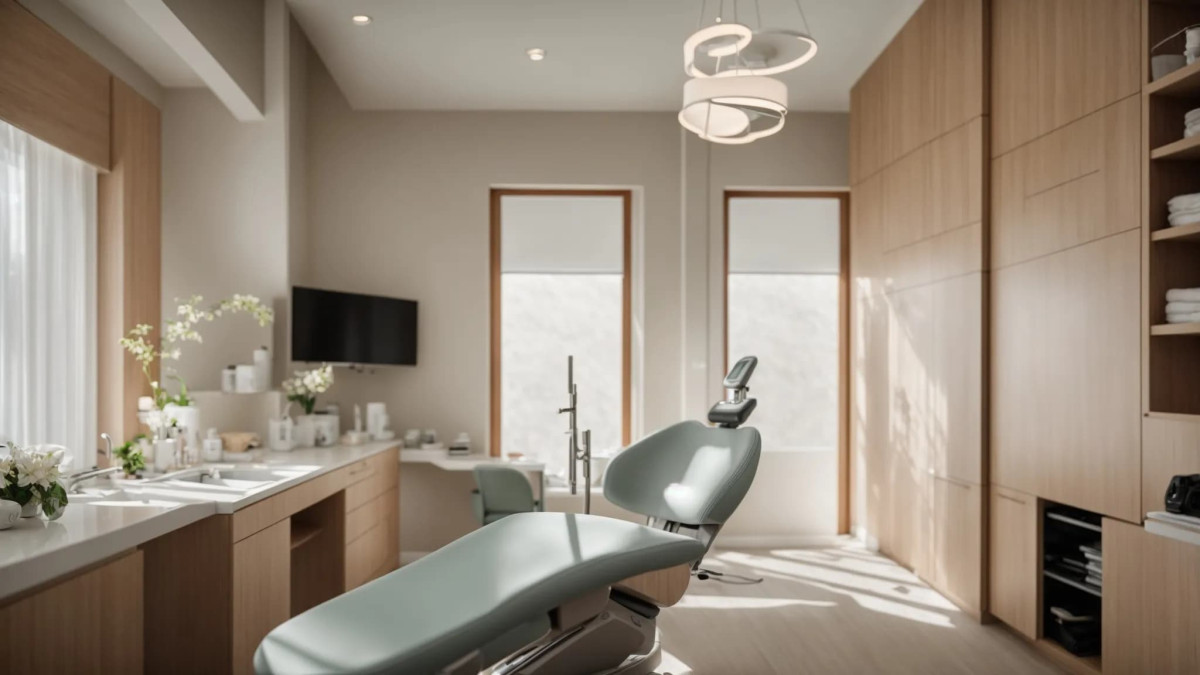For many, the thought of a dental appointment evokes feelings of nervousness, dread, or even panic. This overwhelming fear, commonly known as dental anxiety, affects millions of people worldwide. In fact, research suggests that up to 36% of the population experiences some level of dental anxiety, with approximately 12% suffering from extreme dental phobia. While this condition is common, it can have serious implications—often leading individuals to avoid essential dental care altogether, including regular dental appointments.
Fortunately, dental anxiety is not a life sentence. With the right strategies, support, and modern advancements in dentistry, patients can regain control of their oral health without fear. In this blog post, we’ll explore the causes and symptoms of dental anxiety, proven techniques for managing it, and how compassionate dental practices like Ridgetop Dental are transforming the dental experience for anxious patients.
Table of Contents
-
Understanding Dental Anxiety
-
What Causes Dental Anxiety?
-
Why Dental Anxiety Matters
-
Proven Strategies to Manage Dental Anxiety
-
Dental Anxiety Management FAQ
-
Take the First Step Toward Fear-Free Dentistry
Understanding Dental Anxiety
Dental anxiety encompasses a spectrum of emotions that arise before or during dental visits. These may range from mild unease to severe phobia, where the individual avoids dental care entirely.
Common Symptoms Include:
-
Sweating or a racing heartbeat before a dental appointment
-
Crying or feeling physically ill at the thought of dental work
-
Insomnia the night before an appointment
-
Panic attacks or difficulty breathing in the dental chair
-
Avoiding dental appointments for months or years
What Causes Dental Anxiety?
There is no one-size-fits-all cause, but several common factors include:
-
Past Trauma: A painful or negative dental experience in childhood or adulthood.
-
Fear of Pain: Concern about discomfort during procedures, especially in individuals with low pain thresholds.
-
Loss of Control: Being reclined and vulnerable during treatment can create a sense of helplessness.
-
Embarrassment: Worry about being judged for poor dental hygiene or the condition of their teeth.
-
Needle Phobia: Fear of injections used for numbing.
Recognizing these triggers is the first step toward addressing them. The next step? Finding the right environment and support to make dental care and your dental appointments a safe and manageable experience.
Why Dental Anxiety Matters
While it may seem like skipping a dental visit isn’t a big deal, untreated dental problems can escalate quickly, resulting in:
-
Gum disease (gingivitis and periodontitis)
-
Cavities and tooth decay
-
Tooth loss
-
Abscesses or infections
-
Higher medical expenses in the long run
Beyond oral health, poor dental care has been linked to conditions such as heart disease, diabetes, and even complications during pregnancy. That’s why it’s critical to confront dental anxiety head-on and seek supportive care while keeping up with your dental appointments.
Proven Strategies to Manage Dental Anxiety
Managing dental anxiety requires a combination of dental anxiety management techniques, personal strategies, and professional interventions. Below are some effective methods:
1. Choose the Right Dental Practice
The environment of a dental office can make or break the experience for an anxious patient. A practice that prioritizes comfort, communication, and patient-centered care is key. Selecting a dental practice that specializes in gentle experiences during dental appointments can greatly reduce your fear. For example, Ridgetop Dental is renowned for its warm, welcoming atmosphere and its commitment to making patients feel safe and heard from the moment they walk in.
2. Communicate Openly
Always inform your dental provider about your anxiety. Dentists can tailor their approach by:
-
Explaining each step of the procedure
-
Offering breaks during treatment
-
Avoiding triggers (e.g., showing needles)
-
Using calming language
Open communication fosters trust and helps you feel more in control during your dental appointments.
3. Practice Deep Breathing & Mindfulness
Simple breathing exercises can significantly reduce anxiety. Try the 4-7-8 technique:
-
Inhale for 4 seconds
-
Hold for 7 seconds
-
Exhale slowly for 8 seconds
Repeat this several times before and during your appointment. You can also try guided meditation or mindfulness apps to calm your mind.
4. Bring a Comfort Item
Whether it’s noise-canceling headphones, a stress ball, or a blanket, having a familiar item can provide psychological comfort during procedures. Music or audiobooks can help distract your mind during otherwise stressful dental appointments.
5. Use Sedation Dentistry
Modern dentistry offers a range of sedation options for anxious patients:
-
Nitrous Oxide (Laughing Gas): Offers mild relaxation, wears off quickly.
-
Oral Sedation (Conscious Sedation): A pill taken before the appointment to ease anxiety, allowing you to remain relaxed yet awake.
-
IV Sedation: Administered intravenously for deeper relaxation.
-
General Anesthesia: Used for extreme cases or complex procedures.
Ridgetop Dental specializes in sedation dentistry, offering tailored sedation solutions to help even the most fearful patients undergo treatment comfortably and safely.
6. Schedule Wisely
Choose appointment times when you’re least likely to feel rushed or stressed—typically early in the day. When planning your dental appointments, consider times of day when you are more relaxed and less likely to experience stress.
7. Visit Regularly
Ironically, one of the best ways to reduce dental anxiety is through regular visits. Keeping a schedule for your dental appointments helps reduce anxiety, as familiarity with the dental team, the environment, and procedures gradually diminishes fear over time.
Dental Anxiety Management FAQ
Q1: What is dental anxiety, and how common is it? A: Dental anxiety is a feeling of fear or stress associated with dental visits. It’s quite common; studies indicate that up to 36% of people experience some level of dental anxiety, with about 12% suffering from extreme dental phobia.
Q2: How can I manage my dental anxiety? A: Effective strategies include:
- Open communication with your dentist about your fears
-
Practicing relaxation techniques like deep breathing
-
Bringing a comfort item or listening to music during the appointment
-
Scheduling appointments at less stressful times
-
Considering sedation options for more severe anxiety
Q3: Is sedation dentistry safe? A: Yes, when administered by trained professionals, sedation dentistry is safe. Ridgetop Dental ensures that all sedation methods are tailored to the patient's health history and needs, with continuous monitoring throughout the procedure.
Q4: Will I be unconscious during sedation? A: It depends on the type of sedation:
-
Nitrous Oxide and Oral Sedation (Conscious Sedation): You'll be relaxed but awake.
-
IV Sedation: You may be in a semi-conscious state, with little memory of the procedure.
-
General Anesthesia: You'll be completely unconscious during the procedure.
Take the First Step Toward Fear-Free Dentistry
Dental anxiety is real—but it doesn’t have to rule your life. By taking small, manageable steps and partnering with the right dental team, you can overcome fear and embrace a lifetime of healthy smiles. Don't let fear hold you back from essential dental appointments that can safeguard your overall health.
If you’ve been avoiding dental care due to anxiety, don’t wait any longer. Let Ridgetop Dental help you reclaim your confidence and experience dental care the way it should be—gentle, compassionate, and stress-free.
🦷 Ready to say goodbye to dental anxiety?
🌐 Schedule your appointment online and discover a new kind of dental care—where your comfort comes first.













